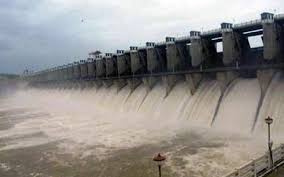New Delhi, Mar 21: The Supreme Court today said it will commence on July 11 the final hearing of the appeals filed by Tamil Nadu, Karnataka and Kerala against the 2007 award of the Cauvery Water Dispute Tribunal (CWDT) on sharing of water for 15 consecutive workings days. A bench headed by Justices Dipak Misra said that all interim orders of releasing 2000 cusecs of water by Karnataka will continue to be in force till further orders.

The allegations were denied by counsel for Kerala who said the state is not using the Cauvery water to build the dam or the irrigation project. The counsel said that the height of dam will be at the optimum level and would not hinder the flow of water from the river. Responding to the contention, the bench, also comprising Justices Amitava Roy and A M Khanwilkar, said the dam project cannot be stalled but the counsel for Kerala may give an undertaking in this regard that the flow of water will not be hindered.
"Your words that no Cauvery water is being used for the projects are being used as undertaking and you should inform the state government in this regard forthwith," the bench said. On October 18 last year the apex court had directed Karnataka to keep releasing 2000 cusecs of Cauvery water to Tamil Nadu till further orders. The apex court had on December 9 last year upheld the maintainability of appeals filed by the riparian states, saying it has the "jurisdiction to decide the parameters, scope, authority and jurisdiction of the tribunal".
The court had earlier said it would first go into the issue of maintainability of appeals filed by Karnataka, Tamil Nadu and Kerala against the award of the tribunal and then hear arguments on the report filed by the Supervisory Committee formed to assess the ground realities in the Cauvery basin region about the presence of water. The Centre had raised an objection, claiming that the CWDT award amounted to a final decree in the dispute and the apex court had no jurisdiction to hear the appeals against it award. However, the states had contended that their appeals were maintainable, saying the Supreme Court had the jurisdiction to adjudicate their petitions filed against the award.







Comments
Add new comment